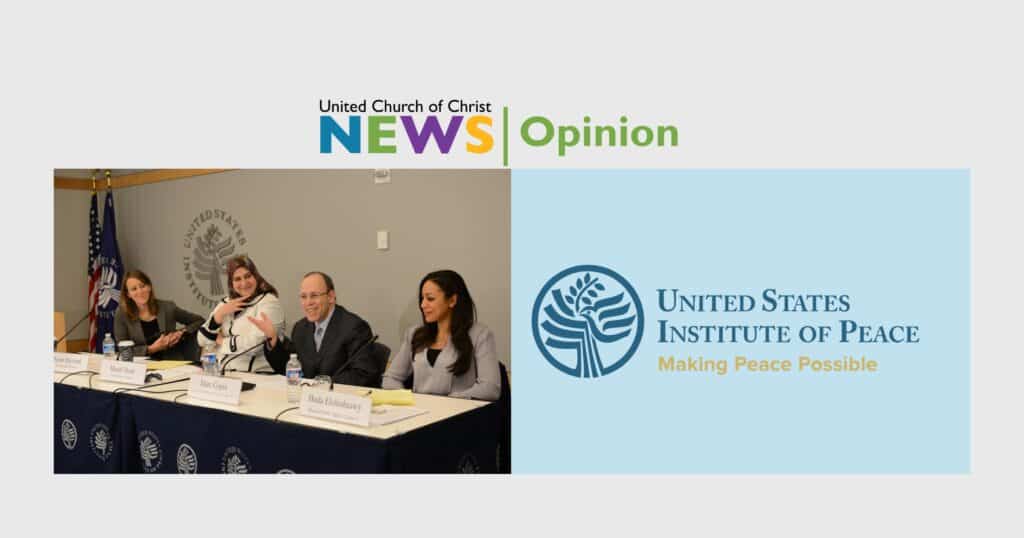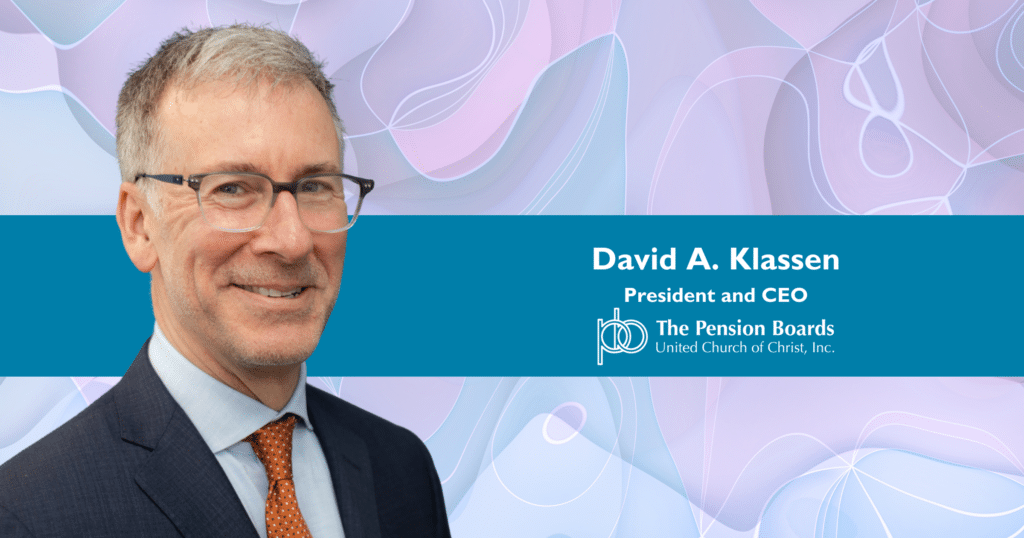Virtual General Synod able to connect delegates with each other and the church
Instead of descending on Kansas City for their biennial General Synod, members of the United Church of Christ gathered virtually instead. Coming together from their homes, or perhaps in small groups from their local church, delegates conducted the business of the church remotely.
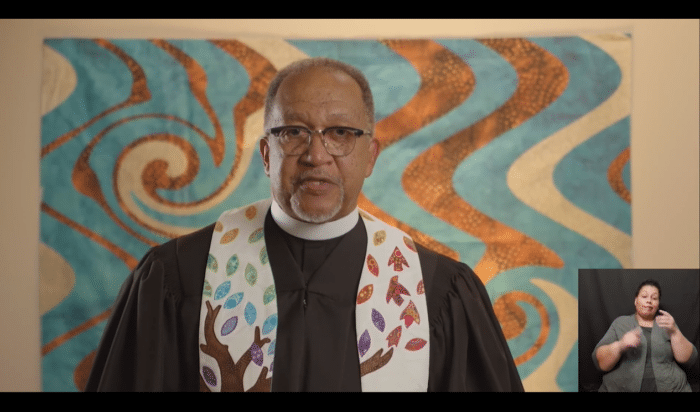
The UCC’s 33rd General Synod closed with worship Sunday, July 18, eight days after the historic “Special Edition” event opened. The Rev. Benjamin F. Chavis preached about the intersection of faith, justice and love during opening worship July 11.
The following evening, activist Valarie Kaur set the tone for the coming week’s work by providing delegates a “revolutionary love compass” — a guide to help the nation transition “into a multi-racial democracy. “You have the resources to strengthen the beloved community you already have,” she said. A second keynoter, Sojourners leader Adam Russell Taylor, picked up that theme later in the week. He urged “beloved community” as an antidote to the “twin viruses” of “systemic racism and toxic polarization.”
Three times, Synod-goers experienced the result of a year’s work by a team of worship designers. When the COVID pandemic forced the Synod to move online, they embraced it as an opportunity to try something new. Using top-of-the-line videographers, audio technicians, editors and musicians, they created tapestries of image and sound. These proclaimed a high-definition gospel in their own right, supported by the power of Chavis’ opening sermon and those of the Rev. Michelle Higgins on July 14 and the Rev. Karen Georgia Thompson on July 18.
Business — and prophetic voice
During the eight days, the 715 voting delegates and almost 2,000 visitors, more than had registered at the previous synod in 2019, found many familiar business elements, such as:
- Budget discussions
- Nominations and an election of Associate General Minister Traci Blackmon.
- Eleven resolutions in which the governing body lent its voice to theological and social issues.
The first of those came already, when delegates continued decades-long advocacy for fairness in society by declaring racism a public health crisis and speaking on other churchwide and worldwide issues. News about all Synod resolutions and actions can be found here.
How it all worked online
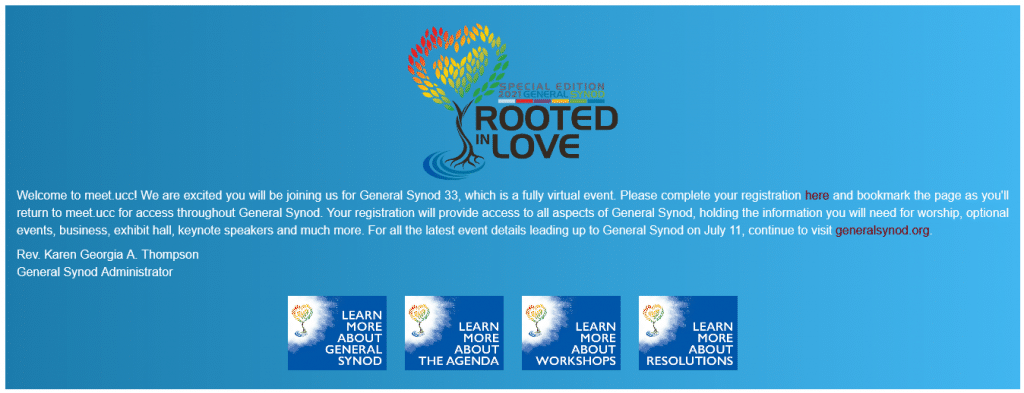
All of this business was conducted through meet.ucc, a special web-based platform allowing delegates to watch and listen to discussion, follow changes made to items of business, and vote. Terms like “hot mic” and “Please mute yourself,” web links for session sync, off-screen whispers, and the familiar instruction, “Please vote when your voting panel becomes available” were commonplace as delegates worked together – virtually – through this new way of meeting.
Thompson, one of the UCC’s two associate general ministers, served as General Synod administrator. She said her planning group learned a lot through selecting a technology platform that provided “voice” for voting delegates and offered opportunities for education and fellowship. “Not being able to meet in person, this was an excellent option for gathering the United Church of Christ for worship and the business of the church.”
The “excellent technology” was not always perfect, often leading to lag times during meetings as the technology – or the delegates – worked to keep up, said the Rev. Ruth Shaver, a delegate from the Southern New England Conference. The largest shortcoming noted by several delegates was not technology but the virtual format itself. “Seeing friends on screen without the ability to say hello, either by chat or by voice,” Shaver said, “has been incredibly frustrating.”
Celebrating and looking ahead
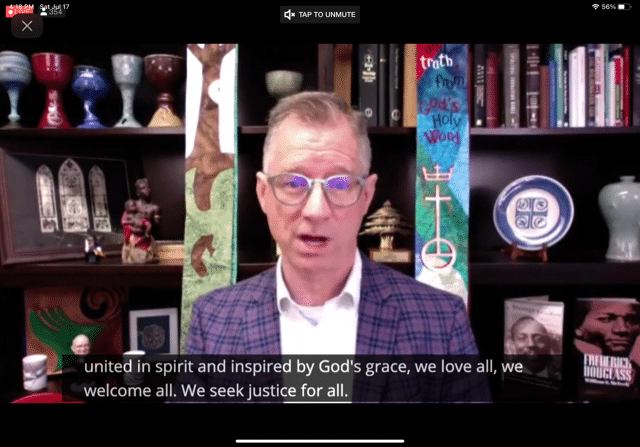
UCC General Minister and President John Dorhauer, in his state of church address, declared that he serves a “denomination on the move.” It is relevant, he said, “to and in a world that is looking for a body fully committed to a love that seeks a just world for all.”
Synod also took time to celebrate a number of milestones and welcome new churches to the denomination. The congregations, representing communities in Texas, Michigan, Indiana and California, appeared in a video segment introduced by the Rev. Aaron Wade, minister for congregational granting with Justice and Local Church Ministries. As he said, “The church of Jesus Christ still stands strong, and it’s still growing.”
As one of the final pieces of business, members of the Indiana-Kentucky Conference invited the church to its next General Synod, scheduled for the summer of 2023 in Indianapolis. Leading that meeting will be newly installed moderator Robert Sandman, from Maineville, Ohio, and assistant moderator A. Rushan Sinnaduray, founding and lead pastor of The Oasis UCC in Jefferson City, Mo. With hopes the pandemic will be past, the gathering is slated to be in person.
What was learned for the future
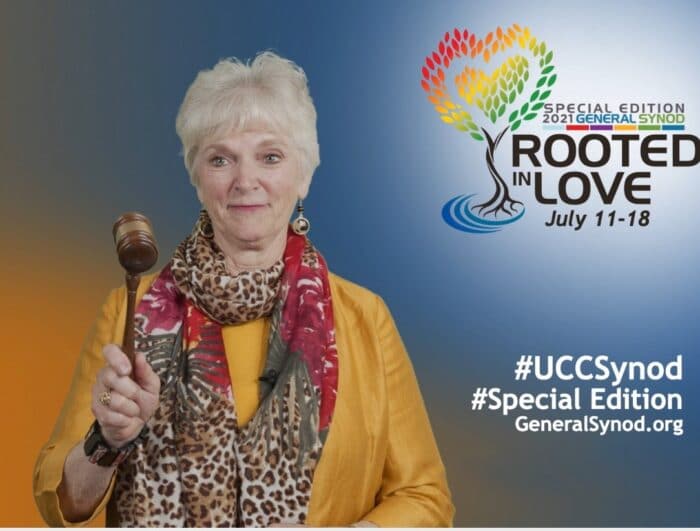
After more than 20 hours online, Moderator Penny Lowes gaveled the Synod to close Sunday evening. By that time, delegates and vistors had:
- Deliberated on all resolutions submitted by bodies from across the church
- Attended one or more of 50 workshops on issues facing their local congregations
- Had opportunities to participate in more than 40 optional events.
- Engaged with more than 82 vendors in a virtual exhibit hall.
And they had displayed, for all to see, numerous video backgrounds of kitchens, bedrooms, basements, even porches. These sometimes caused the polished, planned and practiced business sessions to yield to awkward home camera angles, malfunctioning microphones and the occasional photobomb by a pet.
Even if the gathering returns to a convention center, Thompson sees a future where the in-person and the virtual can co-exist. Hybid technology, she said, might create an even more rewarding Synod, able to reach those who can travel as well as those who, for whatever reason, remain at home.
“I believe there is hybridity in the future of General Synod,” she said. “That is a decision for the General Synod Program and Planning committee. However, we cannot overlook what we’ve learned from this event and the ability to include individuals who may not be able to attend in person.”
Tim Kershner, a longtime General Synod Newsroom volunteer, lives in Campton, N.H., in the New Hampshire Conference.
Related News
Opinion: UCC pastor and former Institute of Peace Staffer calls for action in defense of peace
Editor’s Note: The United States Institute of Peace (USIP), an independent institute founded...
Read MorePension Boards appoints David A. Klassen as its President, CEO
The Pension Boards, an affiliated ministry of the United Church of Christ recently announced its...
Read MoreTrans Day of Visibility message from UCC’s Thompson: ‘We will continue to show up and speak up’
On March 31, pale pink and baby blue striped flags fluttered in the wind in front of homes,...
Read More

